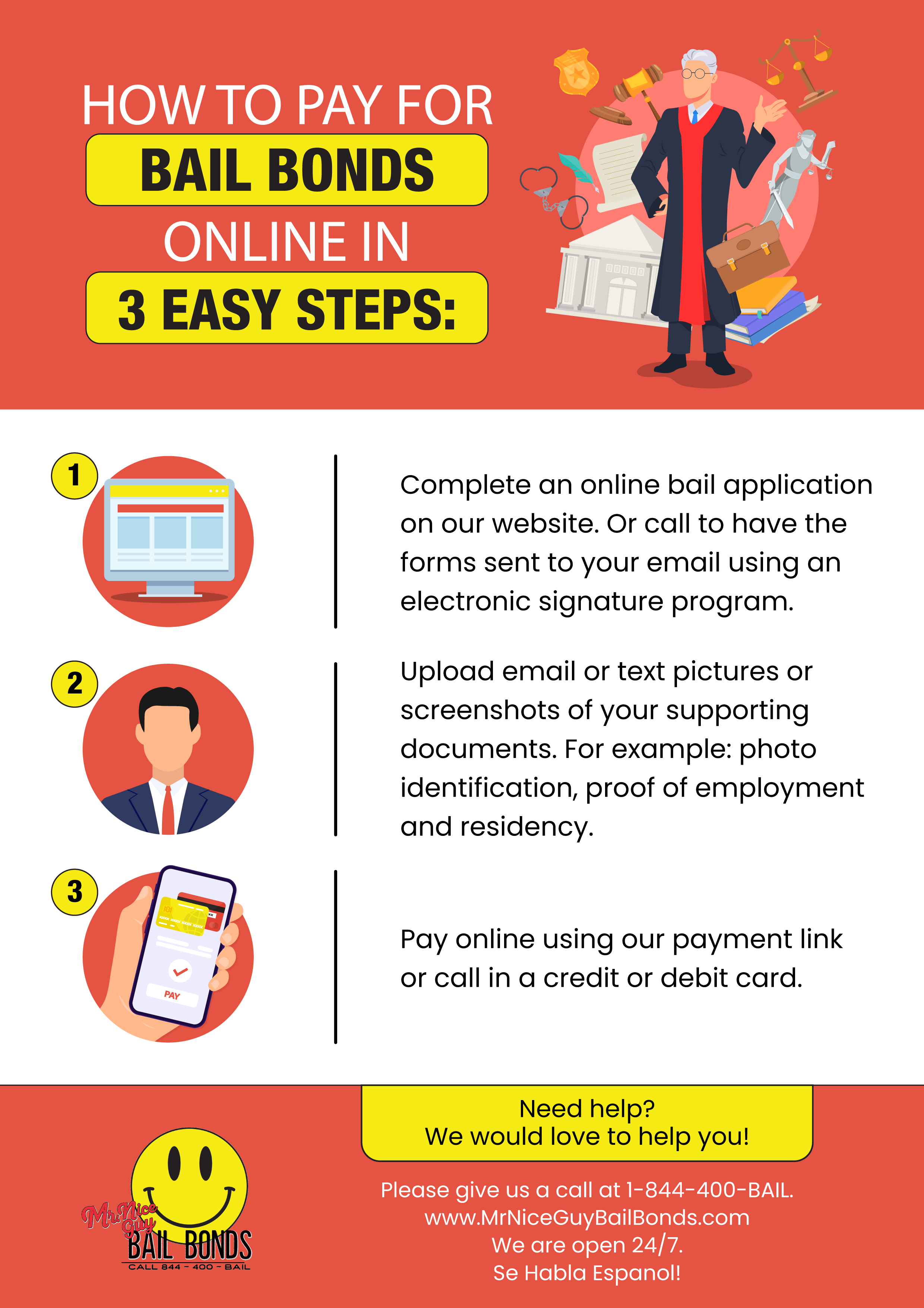Efficient Bail Bonds for Immediate Needs.
Efficient Bail Bonds for Immediate Needs.
Blog Article
Your Total Overview to Recognizing Bond Bond Terms
Browsing the complexities of bail bond terms and problems is an important component of efficiently managing lawful difficulties. Various kinds of bail bonds and their connected costs can dramatically influence the decision-making procedure.
What Is a Bail Bond?
A bail bond is a legal agreement between an offender, a bail bondsman, and the court, guaranteeing that the offender will certainly show up for arranged court process in exchange for their release from safekeeping. bail bonds service. This lawful tool serves to protect the rate of interests of the court by offering a monetary motivation for the accused to abide by judicial needs
(bail bonds springfield ohio)Typically, when an offender is detained, they may be given the choice to post bond, which is a monetary amount set by the court. If the defendant can not afford the bail, they can look for the help of a bond bondsman. The bondsman charges a non-refundable fee-- usually a percentage of the complete bail amount-- for publishing the bail in behalf of the offender.
Upon the defendant's release, the bail bond continues to be in effect till the final thought of the court case. Failing to appear in court might result in forfeiture of the bail quantity, and the bail bondsman might go after the accused to recover the prices incurred. bail bonds service. Understanding the characteristics of bond bonds is critical for offenders and their households as they browse the judicial procedure.
Secret Terms Discussed
Understanding bond bonds involves acquainting oneself with several essential terms that are integral to the process. One vital term is "bond," which refers to the amount of cash needed to secure the release of an offender from guardianship while waiting for trial. "Bondsman," or "bail bondsman," is an additional vital term, denoting an expert that offers the needed funds for bond in exchange for a charge, normally a portion of the total bond quantity.
" Collateral" is also substantial; it stands for assets pledged by the accused or co-signer to ensure the bond's settlement. If the offender falls short to appear in court, the collateral might be waived. The term "indemnitor" refers to the individual that consents to be accountable for the bond, typically a relative or close friend of the implicated.

Types of Bail Bonds
Different types of bond bonds offer different objectives and satisfy certain conditions in the legal system. One of the most common type is the guaranty bond, where a bondsman guarantees the defendant's look in court in exchange for a charge, generally 10% of the bond quantity. This type is widely used due to the fact that it allows individuals that can not pay for the full bond to secure their release.
One more type is the money bond, which calls for the full bail total up to be paid in cash money to the court. This alternative is usually preferred for reduced bond amounts, as it makes sure the defendant's launch without involving a bail visit this site bondsman (bail bonds service). If the defendant appears in court as called for, the cash is refunded at the final thought of the case
In addition, there are home bonds, where actual estate is used as collateral for the bond amount. This can be a sensible choice for individuals that own residential or commercial property but lack liquid funds.
Lastly, government bonds put on federal situations and are normally more tough to acquire, often requiring the aid of a specialized bond bondsman. Comprehending these variants is critical for browsing the bail system successfully.
Common Misconceptions
Misconceptions concerning bail bonds usually lead to complication for accuseds and their families. In fact, bond serves as an economic guarantee that the defendant will appear at their set up court hearings.
An additional usual mistaken belief is that all bond bonds coincide. There are a number of kinds of bond bonds, including guaranty bonds, cash bonds, and home bonds, each with unique attributes and demands. Recognizing these distinctions is crucial for making informed choices.
In addition, many individuals believe that bail bond representatives are simply financing sharks. In reality, licensed bail bond agents operate within a controlled structure, billing a premium for their solutions, which is generally a percent of the total bond quantity.
Lastly, some assume that only well-off people can afford bail. Bail bond solutions are designed to assist those that might not have prompt accessibility to large sums of cash, allowing a more comprehensive segment of the population to secure their launch while waiting for test. Clear understanding of these mistaken beliefs can dramatically minimize anxiety during a difficult time.
Understanding Fees and Expenses
While browsing the bail bond procedure, it is vital to know the costs and prices related to protecting a bond. Bond bonds commonly call for a non-refundable premium, which is a portion of the total bond amount established by the court. This premium normally varies from 10% to 15%, depending on state guidelines and the bail bond agency's plans.
In addition to the costs, there may be other charges involved. These can consist of administrative charges for refining the bond, collateral fees if assets are called for to protect the bond, and prospective renewal costs if the bond needs to be prolonged. It is essential to ask the bail bond agent for a detailed failure of all costs to stay clear of unexpected costs.
(bail bonds akron ohio)Recognizing these economic elements in breakthrough can help individuals make notified decisions and ensure they are prepared for the overall costs linked with the bail bond process. Constantly read the contract extensively and seek clarification on any kind of vague terms before continuing.
Final Thought

Report this page